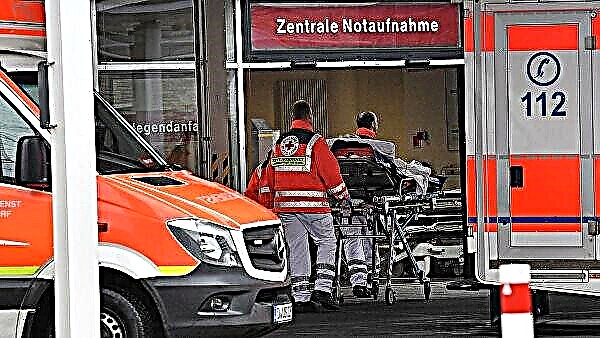At the end of January, Bavaria reported the first case of coronavirus infection in Germany, to date there are almost 5,000. Until now, the Robert Koch Institute described the health risk from coronavirus as “moderate”, now it rates it as “high”.

COVID-19 in Germany
The Robert Koch Institute has adjusted its assessment of the danger of coronavirus. He now also classifies the risk to the public as “high”. RKI President Lothar Wheeler justified this by the large dynamics of the pandemic and a sharp increase in the number of cases. The risk to the population varies from region to region and can be “very high”, as in the Heinsberg region of North Rhine-Westphalia.
So far, the public health hazard in Germany has been classified as “moderate” in general. Wheeler said that it should be assumed that the incidence rates are significantly higher than they are reported to the RKI.
In recent days, countries affected by the pandemic across Europe have taken numerous measures to contain the spread of the virus. Lars Schaade, deputy director of the Robert Koch Institute, confirmed that it is important to avoid contact and crowds due to the risk of infection.
Therefore, schools, universities, clubs and bars are closed, restaurant opening hours are limited: after the introduction of massive measures to protect against the spread of coronavirus, the Robert Koch Institute (RKI) expects possible results to improve the situation no earlier than the end of next week
Trends in numbers
According to the RKI, by Monday evening the number of confirmed cases of infection in Germany amounted to 6,012, which is more than 1,100 cases more than the day before. In the morning, more than 7,500 cases have already been recorded.
Even well-equipped clinics are increasingly reporting infections, Wheeler said. The number of serious illnesses is growing. Everything possible must continue to be done to contain the spread of the virus and not overwhelm the health system.
He demanded that the clinics prepare as soon as possible. “We expect at least a double increase in work intensity from all hospitals. One case in five has a severe course. It is clear that the elderly and people with existing medical conditions are particularly at risk.
The German Clinic Society is demanding immediate financial “protection for all hospitals”. Otherwise, a number of clinics affected by the virus crisis “would very quickly be on the brink of bankruptcy,” said DKG President Gerald Hass of the Neue Osnabrücker Zeitung.
Restrictions may take longer
 According to the Robert Koch Institute, it may be necessary that the restrictions imposed by Germany and other states remain in force for two years. “As a last resort, such a possibility will be considered,” said the head of the RCI Wheeler. The situation needs to be constantly reevaluated. It will take years for the expected infection rate to reach 60-70 percent. In addition, the duration is highly dependent on when the vaccine can be used.
According to the Robert Koch Institute, it may be necessary that the restrictions imposed by Germany and other states remain in force for two years. “As a last resort, such a possibility will be considered,” said the head of the RCI Wheeler. The situation needs to be constantly reevaluated. It will take years for the expected infection rate to reach 60-70 percent. In addition, the duration is highly dependent on when the vaccine can be used.
The German Red Cross (DRK) called for blood donations. Currently, the supply of blood plasma “is still at the lowest possible level,” said the DRK Nord-Ost Blood Donation Service.











